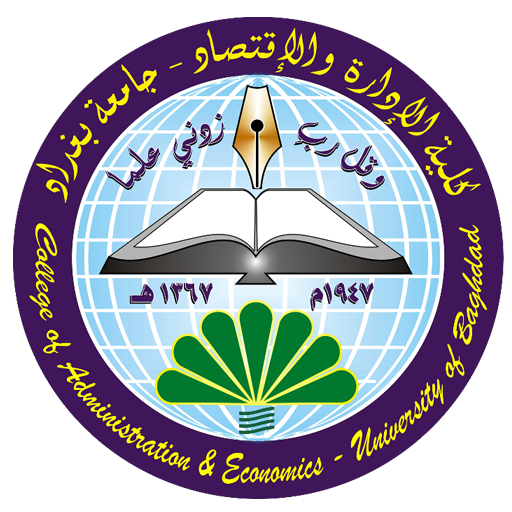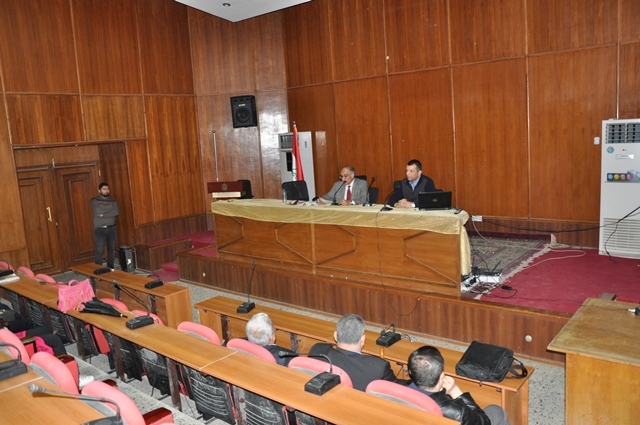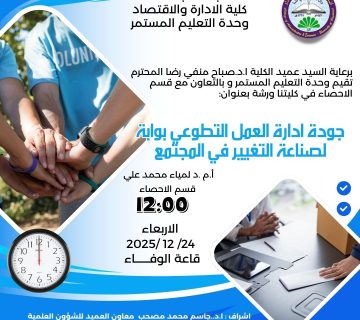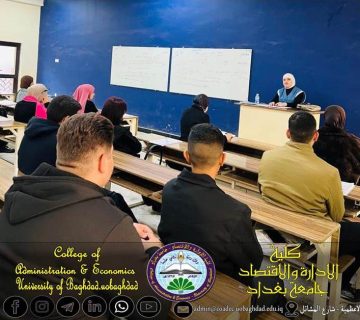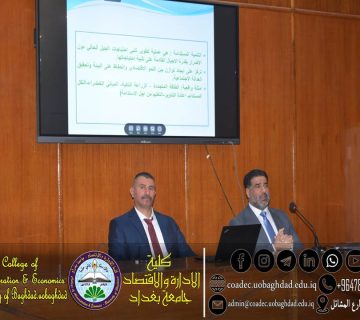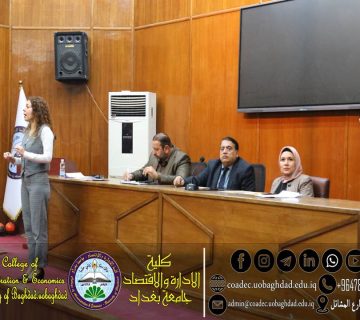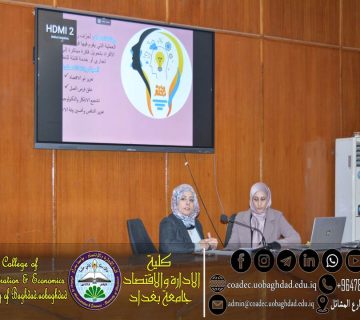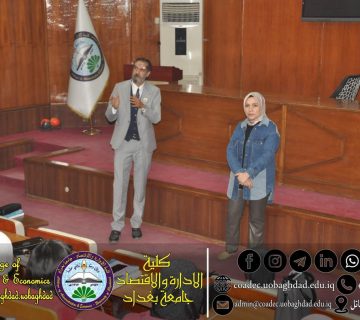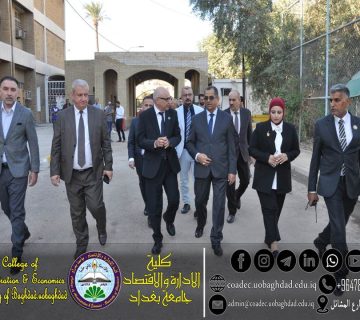The Department of Economics organized a scientific symposium entitled Agricultural Production in Iraq and the Biofuel Industry. The symposium was presented by Dr. Muzahim Maher Ali and Asst. Prof. Omar Hamid Majeed touched on ways to support the agricultural sector in Iraq and methods for developing it using modern techniques and advanced technology and the necessity of competitive production especially local and foreign products. The symposium came out with a number of noteworthy recommendations, the most important of which are:
- Develop an integrated strategy that would produce food in markets, bridge the food gap, achieve self-sufficiency, reduce dependence on the outside for providing food, and develop a comprehensive agricultural policy that integrates with food policy, agricultural policy, water policy, environmental resource management policy, and financial market development policy.
- Increasing the contribution of agriculture to the gross domestic product and fixed capital formation, and considering the agricultural sector as an essential sector in diversifying the economic basis of the country and in addressing the poverty concentrated in the Iraqi countryside.
- Providing support and protection for important strategic agricultural crops such as grains, which are considered an important focus in the country’s food security, and encouraging their cultivation.
- Modernizing laws and instructions and developing rational agricultural policies to develop the agricultural sector, especially after the recession of 2003 and with the aim of serving the public and achieving economic growth.
- Introducing modern agricultural technology and advanced agricultural techniques, working to disseminate them, training farmers on them, and paying attention to centers for agricultural scientific research, agricultural extension, and agricultural training.
- Establishing a fund or institution for agricultural insurance against natural disasters and agricultural pests, as well as disasters in agricultural markets.
- Establishing import controls and monitoring of imported agricultural commodities and reducing the policy of commodity dumping and smuggling. This policy does not affect the consumer and their food needs.
- Reducing the phenomenon of fragmentation of agricultural ownership, converting agricultural lands into residential ones, and preserving the agricultural environment in the country.
- Challenging Iraq’s accession to global trade systems and contributing to the crystallization of agriculture to meet this challenge.

